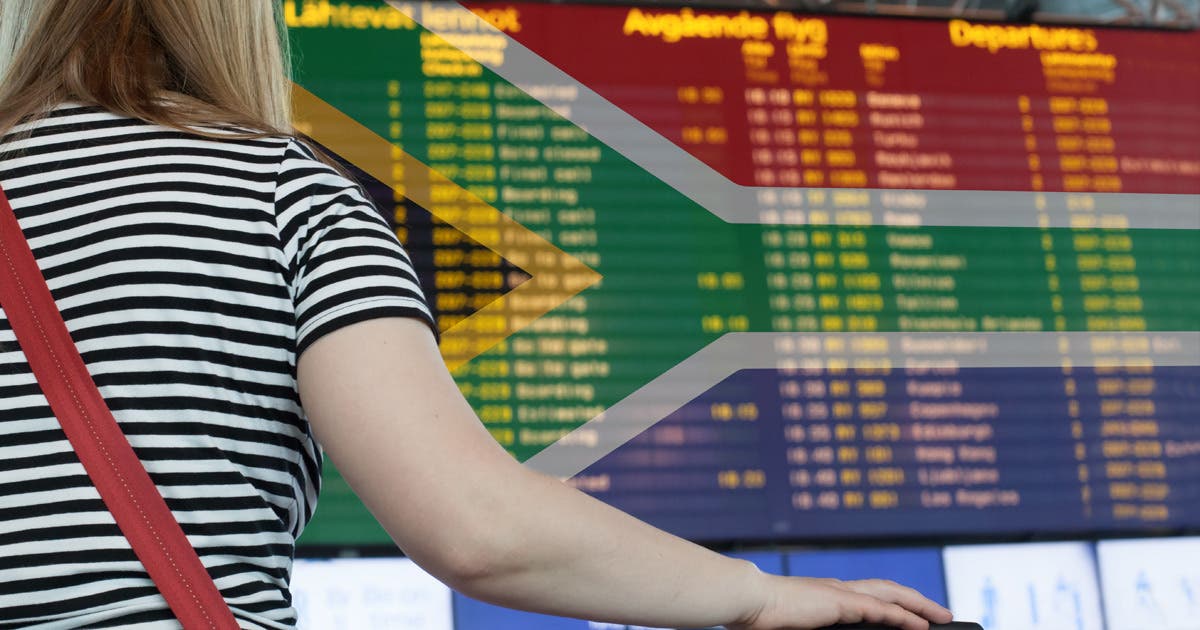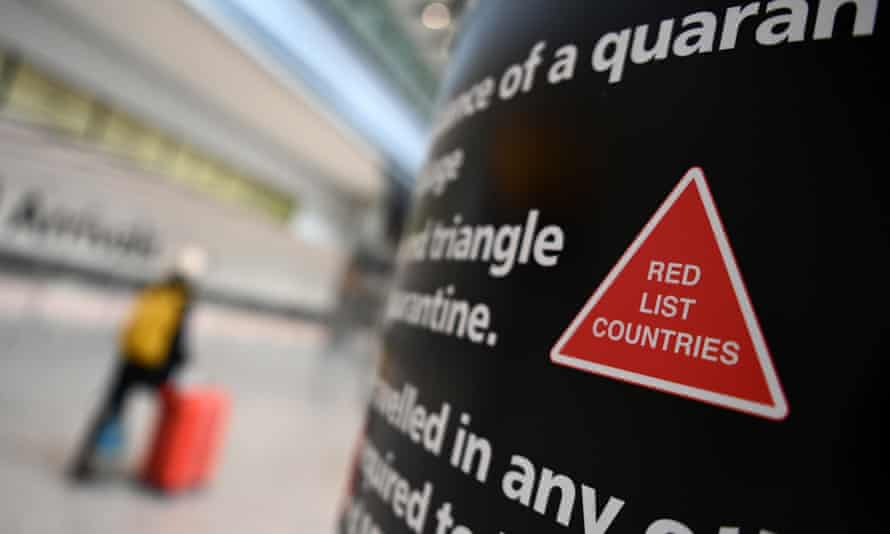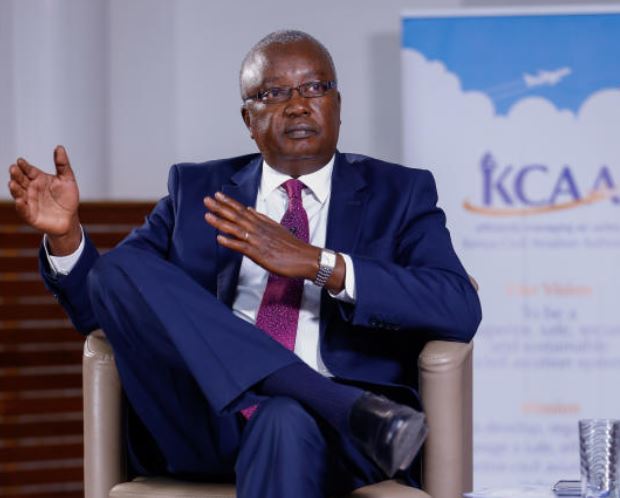The Kenya Association of Travel Agents (KATA) and Amadeus East Africa announced Kenya’s Travel Recovery and Demand performance for 2021 in a webinar on “Outlook on Recovery” for the travel trade in Kenya. Amadeus search and agency booking data shows a very slight improvement in both outbound and inbound search demand and booking volumes for 2021 YTD vs. the same period in 2020.
Travel demand remains significantly below pre-COVID-19 levels owing to international travel restrictions in key markets in Europe, North America and Asia. However, in June 2021 there has been growth in searches and bookings to EAC countries with Tanzania leading as a leisure destination and also to the UAE. During the same period, there has been a growing demand for inbound travel into Kenya from USA, Germany and UK. Domestic travel searches remain high as people are looking to travel more within the country. However, overall travel demand to and from Kenya stands at -69.9% in June 2021 compared to same time in 2019.
The data presented indicated that COVID-19 related restrictions were a showstopper as 84% of respondents said they won’t travel if there is a chance of quarantine. According to the United Nations’ World Travel Organization (UNWTO), it is important for countries to start lifting travel restrictions to significantly improve traveller confidence.
Safe Travel Ecosystem: Preparing for Recovery
Speaking during the webinar, Jamel Chandoul Senior Vice President, MEA Amadeus noted that recovery will be driven by rebuilding traveller confidence and trust; trust for travellers that travel is safe and trust that governments can control the pandemic.
According to global data presented by Amadeus drawn from the “Rebuild Travel Digital Health Survey 2021” 92% of global travellers still have concerns about travelling – the top 3 travel concerns in 2021 are;
- 48% – Mixing with crowds at airports etc.
- 47% – Trust issues if accommodation is adhering to health and safety guidelines
- 46% – Safety & cleanliness of public transport
The survey findings indicated that CONFIDENCE to travel is high and the current appetite for travel stands at 41% globally. TRAVEL TECH has also been seen as a key confidence booster among travellers and if well deployed could be paramount to help restart global travel. 91% of travelers indicated that they were comfortable using a digital health passport for future travel.
INDUSTRY COLLABORATION is also key to reigniting global travel. 72%-74% of travelers said they were willing to store travel health data electronically, if it enables them pass through airports faster and travel to more destinations while 68% of travellers are willing to share health data if the airlines that they frequently fly with offer to store it.
“A renewed travel industry will require collaboration between governments, travel companies, entrepreneurs, and public authorities,” said Mr Chandoul.
What’s Trending in travel: Search Trends – Inbound & Outbound
Kenya Inbound Trends
A key trend noted in data by Amadeus is that 63% of international travellers searching for Kenya in June planned to travel within the next 3 months. This is an indication that travellers are planning and booking with shorter lead times.
The data presented shows a positive trajectory for travel during the course of 2021, with a gradual increase in searches. For instance, the average daily search activity of international travellers interested in Kenya in June was 10% higher than the year-to-date average. In July it was already 31% above the 2021 average.
Most searches for travel to Kenya in 2021 originated mainly from USA, 43% of total demand, followed by Germany 8%, UK 7% and Canada 4%. The USA also recorded the highest relative share of bookings at 30% followed by Germany at 8% and UAE and UK at 4% each.
Kenya Outbound Demand Evolution
Demand for Kenyans to travel to destinations outside Kenya has been increasing steadily in the past 2 months. The average daily search activity of Kenyans in June was 8% higher than the year-to-date average and in July it was 35% above the 2021 average. The most searched destination by Kenyans in June 2021 was USA, 30% of total demand, Tanzania 5%, UAE 5%, and UK 4%, and the most booked destinations were UAE, with 15% of total bookings, USA 12%, Tanzania 7% and Ethiopia 6%.
UAE is leading due to fewer COVID-19 travel restrictions in place. In East Africa, Tanzania is the leading destination travelled to by Kenyans especially for leisure activities. This demand is driven by relaxed COVID-19 border restrictions for Kenyans visiting the country.
Evolution of Booking and Departure Lead Time for Kenya
We noted that the booking and departure lead time significantly reduced in 2021YTD compared to 2019. This is largely driven by the uncertainties with the destinations that Kenyans travel to. The constantly changing travel restrictions has affected early bookings and most Kenyans prefer to book close to their departure date.
- 72% of searches in June had a departure date in either June or July
- Booking lead time in 2019 – 26.4 days
- Booking lead time in 2021 – 16.9 days
Kenyan Seat Capacity Recovery: Percentage vs 2019 volumes, July – December
Kenya’s seat capacity among international airlines operating from Kenya has also been recovering gradually when compared to 2019 volumes, albeit slightly behind the global average;
- Seat Capacity recovery to international destinations – 51% (Global recovery is at 63%)
- Seat Capacity recovery to domestic destination – 86% (Global recovery is at 91%)
- Seat Capacity recovery to Middle East – 72%
- Seat Capacity recovery to North Africa – 83%
Notable Travel Trends for 2021
- There has been a 20% increase on searches for 20+ day stays in multiple destinations searched by Kenyans. The need for longer vacations/stays by Kenyans to various destinations can be attributed to quarantine requirements of about 2 weeks in various destinations, and a general interest/need for longer vacations which can be seen as making up for restricted travel in 2020.
- There has been an increase in relative share of Business and First-Class bookings from 9% in 2019 to 11% in 2021. This can be attributed to great discounts from airlines and an increased demand for indulgent travel.
The indulgent travel trend can be observed for all of the high-demand destinations for Kenyans:
- UAE – increased from 12.4% in 2019 to 20.9% in 2021YTD
- USA – increased from 11.1% in 2019 to 11.7% in 2021YTD
- UK – increased from 23.0% in 2019 to 27.4% in 2021YTD
- Tanzania – increased from 3.2% in 2019 to 4.0% in 2021YTD
Key insights for Travel Agents
Shorter lead times – The constantly changing landscape brought about by the pandemic has weakened consumer confidence and shortened the average booking to departure lead time. Travel Agents can leverage last-minute promotions to entice customers.
Emerging Destinations – With some markets enforcing travel bans and others opening themselves up to inbound tourism, we are witnessing a new order of top destinations. These change quickly as consumers react fast to travel announcements. By monitoring border openings, Travel Agents can prepare new offers and entice clients whilst demonstrating their knowledge of the evolving situation.
Extended stays in destination – There has been a global trend of longer average stays in destination. Kenyan travelers are no exception, with 2021 seeing a 20% increase in booked trips of 20 days or more. Travel Agents may want to consider increasing the number of longer stay trips in their offering.
Indulgent travel increases – Qualitative studies conducted by Amadeus indicate that travelers desire more indulgent and longer holidays now that travel once again becomes possible. In Kenya the relative share of booked seats in premium classes increased by 2% in 2021. This could mean there is increased potential to upsell clients to premium seats.
Industry Reaction
The webinar attracted attendance from different stakeholders within the travel industry including travel agents, government stakeholders, academic institutions and research institutions.
Speaking during the virtual session, Hon Joseph Boinnet, the Cabinet Administrative Secretary (CAS) in the Ministry of Tourism and Wildlife expressed optimism in the resilience of the Travel and Tourism Industry to recover following some of the recovery measures put in place by government.
“The impact of COVID on the tourism and travel industry has been devastating. The data obtained from the Tourism Research Institute show that the industry made losses of upwards of 1.2 million full time jobs that translated to losses of KSh.192 billion in direct labour earnings, Ksh.492 billion on the entire tourism sector value chain while the industry players are estimated to have lost business value of up to Ksh.500 billion,” said Hon. Boinnet, terming this as catastrophic livelihood losses.
He lauded the government for taking proactive measures to ensure the sustainability of the industry such as ensuring that public and privately managed parks continue operating, promoting Kenya as an all-round destination for visitors and advocating for increased vaccination among the industry players. He said this while expressing his optimism in the industry’s recovery trajectory that is projected to fully recover by 2024.
Mr. Mohammed Wanyoike, KATA Chairman also expressed confidence on the industry making a full recovery sooner rather than later. “The industry is currently performing at about 40% of the 2019 numbers and this is an indication that the worst is behind us,” he said.
Mr. Mathieu Dutrisac, the Managing Director of Amadeus East Africa lauded the partnership that KATA and Amadeus have had for years that has seen the two provide the much-needed support to Kenya’s travel trade through the data insights.
Ms. Agnes Mucuha, KATA CEO urged the industry players to leverage the use of data in studying future trends. She said that use of data, embracing digital technological solutions and collaboration among the industry players will play a central role in ensuring a speedy recovery. “The pandemic has transformed the role of travel agents to travel advisors. Consumers will now be looking to you as a one stop shop for all their travel and informational needs relating to the everchanging travel industry,” she said.
Amadeus’ search and agency booking data is the source for all data quoted in this release. Please see the footnote for further details.
–ENDS—
About Amadeus search and agency booking data
As a key travel technology provider, Amadeus analyzes billions of global air travel transactions daily in near real time. Amadeus search and agency booking data is a suite of products that leverage the rich travel data generated across Amadeus to provide relevant and up-to-date travel trends and market information to the trade, destination tourism offices and tourism boards. The data includes in-depth information on Air Travel Demand – Flight Searches in OTAs globally, Travel Agency Bookings- Passengers booked via all GDSs, Seat Capacity- number of flights and seats scheduled and operated by airlines, Air Passenger Traffic- overall passenger volumes regardless of the booking channel.










